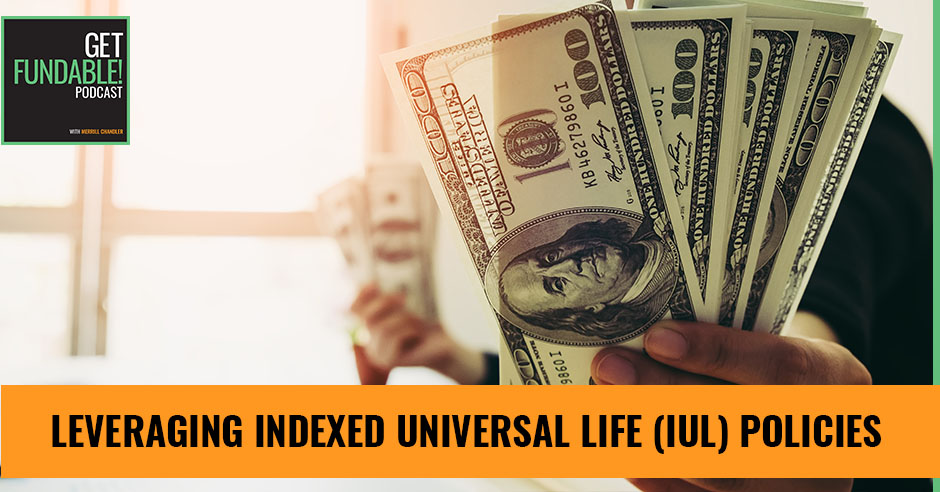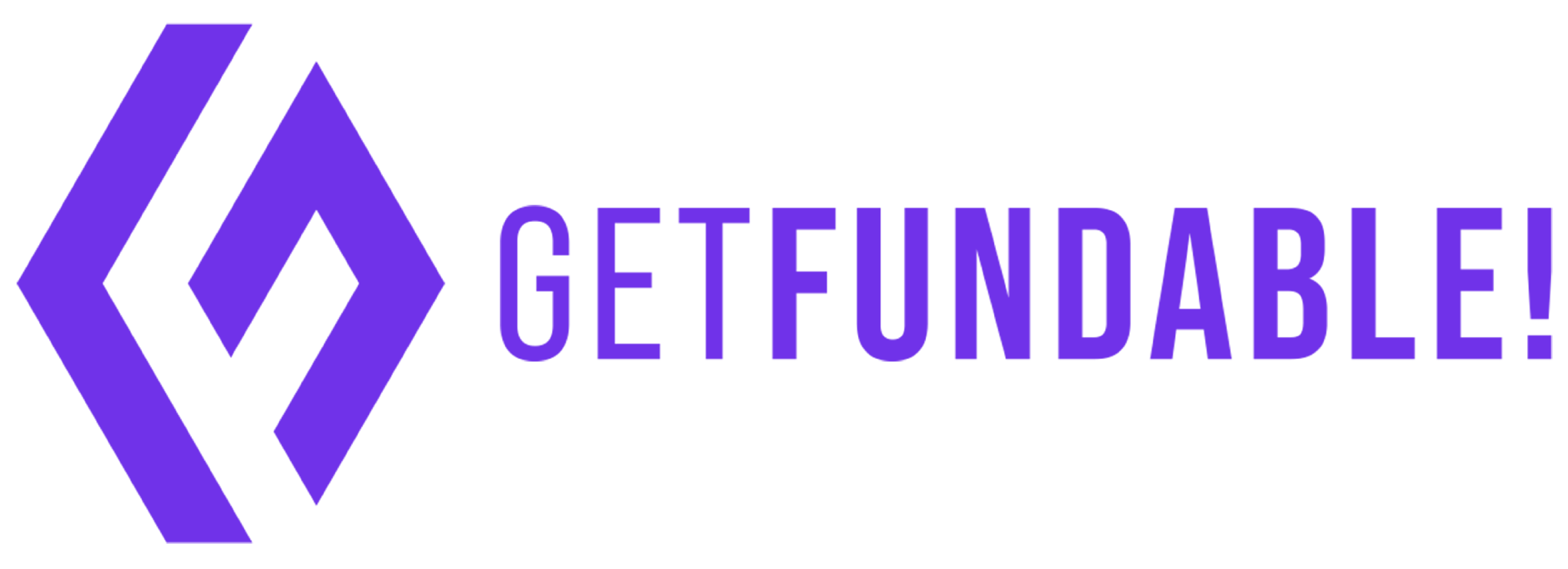
How important is having insurance? Are you aware of the benefits it could give you and your family? What are universal life policies or indexed universal life policies? In this episode we will give you the knowledge you need to have about it. IUL actually has two facets: cash value and death benefit. Learning more about cash value will give you an edge when it comes to maximizing your insurance policies. You can have an in depth example by tuning in here!
—
Watch the episode here:
Listen to the podcast here:
Leveraging Indexed Universal Life (IUL) Policies
In this episode, we are going to expand the fundability™ target to include indexed universal life insurance policies. How are they fundable? Do they contribute to our fundability™? Do they get in our way? How do they work such that we can use them as part of our traffic cascades? How would you like to borrow money at 1%? I will see you on the inside.
—
In this episode, just like you read in the introduction, this can be a complex matter. There are universal life insurance policies, being your own bank and infinity banking. This is an episode that if you can get to the Get Fundable! Podcast, it’s going to be super valuable, the diagrams that I do on my easel. If you can’t, as always, I’m going to explain as clearly as I possibly can, every single step that I’m taking. I want you to know that there’s going to be a lot going on.
We are talking about universal life policies or leveraging universal life policies, and also indexed universal life policies. If we are to do a scatter chart, there are twenty different variations on a theme. We are going to go from the 1,000-foot view to the 100-foot view. You need to talk to your insurance people about the boots on the ground view. If you haven’t considered these before and seen what they do and how they affect your fundability™, that’s what this episode is all about. Let’s build a diagram. I’m making it look like a beaker or an open-ended box open at the top.
If you can borrow your own money, you can become your own bank. Share on XThis open-ended box is the container of the universal life or the indexed universal life policy. That is our container. There are 2 main facets to 1 of these indexed or universal life policies. The first facet is what we call the cash value. I will go descriptors in all of these. Let’s go to the top. At the top, we are going to call it the death benefit in traditional terms of buying insurance policies. If it were a different type of insurance, it’s a term life. Let’s say you are going to do $1 million. You buy insurance for your age and health. There are physicals involved.
You buy a life insurance policy so that if you die, your beneficiary or whoever you have made the beneficiary of this life insurance policy gets the death benefit of $1 million. There are many variations on it but some of these get smaller and smaller the older you get. In some of them, you can maintain the $1 million. Let’s say it goes down to $100,000 at 70 years old and $50,000 at 80 years old. In some of these insurance policies, by growing how much you pay every year, you can maintain the size of the death benefit. Ask your registered and licensed life insurance agent for details.
What we want to be aware of is there’s the cash value and the death benefit. Let’s say that we have a policy where every year, we add $10,000 in insurance payments. You can make $2,000, $5,000 or $30,000 a year and buy as much insurance premium as you wish. Interestingly enough, some people use their IUL or Indexed Universal Life policy as their savings program instead of putting it in the bank because you are only going to get in this marketplace 0.5% or 0.75% of 1%. Many universal life will offer 4% to 5% interest on your money.

Indexed Universal Life Policies: Some people use their IUL or their universal life policy as their savings program, instead of putting it in the bank.
You are buying premium but technically, you are putting it into a savings account, which is the cash value of that insurance policy. For every $10,000, let’s say you do it five times, you’ve got a $50,000 premium. There’s the cost and the administration fees. This is where it becomes super lucrative for the insurance provider and the insurance contact or your salesperson because they could be making $1,000 or $2,000 a year. You are paying their commissions for signing you up on this program. There are some workarounds way beyond the scope of this.
My daughter has her licenses. There are ways that you can split the premium costs or get a rebate from someone you know. There’s a whole bunch of workarounds. That’s beyond the scope of this episode. Let’s say that we have put in $50,000 in premiums. That $50,000 turns out to be approximately $40,000 in actual cash value. We are going to put $40,000 in cash value. You paid 10,000. $40,000 of it made into the savings part or the cash value of the insurance program. Here’s what’s awesome. Instead of putting it into the bank, you are putting it into this cash value.
You are making 4% to 5% interest on this money from the markets. There are options out there for this universal life. They call them indexed universal life because they are indexed to the DAO, some money market funds or otherwise, it never goes below 0% even though it’s indexed 3%, 4% or 5%. I have had clients tell me that they have gotten 7% and 8% in certain years but it never goes below 0%. Even if the markets fail miserably, you don’t fail miserably. It’s never less than 0%. They don’t charge you money for the market going southbound but you have to elect for that.
Get your cash value as high as possible so you can borrow against it and expand your empires. Share on XThe purpose of this episode is to make sure we are asking our insurance agents the right questions. Now that we have $40,000 in here of cash value, I can borrow against that cash value at many of them at 1%. I’m making a net 2%, 3%, 4% or more percent on my money. The whole point of this episode is to compare the process of an IUL against fundability™. Some people say, “If you can borrow your own money, that means you can become your own bank.” The term is infinity banking. You can use this as a master sweep account. Check out our episode on master sweep accounts.
You can use this as a master sweep account because you are borrowing your own money at 1%. Here’s the challenge that we are up against. Some people say, “Buy a car with your cash value because if you buy the car from yourself and you are only paying 1%, you are using this $40,000 to buy a $30,000 car. The cash value goes down to $10,000. You are paying it back at 1%.” You are saving money. You can do that for your 2nd, 3rd or 4th car. You don’t want to do it for your first car. Why? It’s because the first card needs to be on your profile.
You don’t want to finance it here. You want a lender to finance it, so it ends up on your profile as that placeholder auto loan. If you want a second car, a car for the kids or whatever else you are doing, you can borrow your own money here. If we are going to go for the highest yield on fundability™, we want that placeholder automobile. Here’s the other thing. Let’s say that we keep going. I’m going further up the container. Let’s say that we have $200,000 because we did a fix and flip, sold a business, got a huge $10,000 tax or whatever it takes.

Indexed Universal Life Policies: Technically it’s life insurance, because it has a death benefit, but it is a way more sophisticated machine wealth generating machine, if used above and beyond the death benefit.
The way you get it into the insurance is you buy more premium and insurance. Let’s say that you went over a couple of years or whatever it is. Your cash value is at $200,000. We went from $40,000 and kept adding every dime we’ve got, everything we did, massive bonuses, fix and flip, sold a house or whatever it was. That cash value became $200,000. Here’s what’s also amazing about most. You’ve got to check with your agent. Let’s say you’ve got $200,000.
You can now buy a rental property using that $200,000 at 1%. You are now paying yourself back a very cash-rich cashflow from the rentals on that $200,000 home. Let’s say you buy a rental for $200,000. At $200,000, you are making $2,000 a month rental income. You bought it using your 1% money that is in the cash value of your IUL. You are paying 1% of $200,000. You are making $2,000 a month but it’s charging you $2,000 a year for that loan. You are paying yourself back $2,000 a year.
That means you are cashflowing $22,000 a year off that property because you borrowed your own money from the cash value pool that is in your real estate in this insurance policy. Here’s what’s tricky. You’ve got to make sure you talk to your agent about this. If you do this right and buy these properties inside of your IUL, it’s now owned by the IUL. All the appreciation is tax-free and is not subject to capital gains. All the profits are tax-free. Let’s pretend 1 or 2 years goes down the road. You bought this house and did two years’ worth of rentals.
IUL is just a wealth creation container. Share on XLet’s say 2021 comes and goes. You are like, “We made 17% on this house. We made $50,000. Let’s dump this house.” You sell this house and get back your $200,000 but you made $50,000 in profit. That goes in as profit and premium inside of your IUL. Your cash value to borrow against is now $250,000, not $200,000. Is everybody following me? It’s a wealth creation container. Some of the ancient banks that have been around for years started as family banks where they started lending money out into the world instead of among their own empire.
Hence, the JPMorgan Chases and their progenitors use these models to lend to themselves. It extended into becoming the vast banking machine in the world. This is the essence. You have to talk to your investment advisor, insurance agent or both of them on a conference call. The idea is to get your cash value as high as possible, so you can borrow against it and expand your empires. I know HV or HomeVestors people who are using their cash value life insurance to buy additional franchises.
Some have sold those franchises for a profit and it added a higher cash value to their insurance policy. Some of them there have appreciated and those franchises have appreciated in value inside of their life insurance policy. Think of it this way. Technically, it’s life insurance because it has a death benefit but it is a way more sophisticated wealth-generating machine if used above and beyond the death benefit. You have to look for them. There are some that allow you to borrow against a certain amount of the death benefit as well, not just the cash value.

Indexed Universal Life Policies: There are options for these universal lives where they call them indexed universal life because they’re indexed by some money market funds or otherwise, but it never goes below zero.
They may allow you based on how long you have had it, how long you have been with them and how well you manage it. Like any lender out there, these insurance companies who also own banks and lend to people may allow you to go above and beyond the cash value amount and creep closer towards the death benefit amount so that you are able to use that money now and build an empire to pass along that exceeds the death benefit of the life insurance policy.
Let’s say you have a $3 million estate. That’s a cash value amount. Upon your death, after all the dust settles and all is said and done, that cash value then is part of what is passed along to your beneficiaries, family, loved ones or whoever happens to be on that bottom line. There it is, your death benefit or IUL. I’m glad you could join us. Our episodes are designed to share the fundability™ possibilities, not just explain this.
How I want to wrap this up is that fundability™ is simply meeting the lender’s funding guidelines or the approval guidelines. Those approval guidelines are very important. There are approval guidelines inside of whatever IUL, universal life or insurance policy that you decide to engage. We want to make sure that we hit those guidelines because that’s how it creeps up towards thinking of approvals here as letting you borrow against more than your cash value. We will see you next time.
Important Links:
- Get Fundable! Podcast
- Master Sweep Accounts – The Truth About Home Equity Lines of Credit and How They Impact Your Fundability™ – Previous episode




